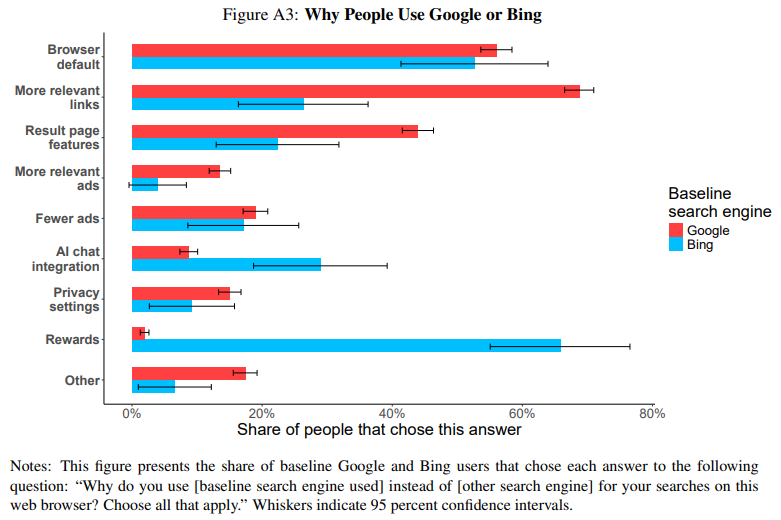The questions regarding Google’s Search dominance have largely been posed due to the emergence of generative AI.
And as genAI shifts those grounds below us all, Google seems to be responding. A recent Bloomberg profile of Google Search head Elizabeth Reid reveals preparations for making the Search Bar less prominent as voice and visual searches rise in use. (But forgive publishers for focusing on the assessment of an anonymous former senior executive, quoted as saying, “Giving traffic to publisher sites is kind of a necessary evil.”)
But what else could be contributing to Google’s recent actions around Search? Could it be that users’ mere exposure to Search alternatives is enough of a crack to break the whole thing wide open?
The Strength of Default Search Engines
A recent research study published by the National Bureau of Economic Research looked into the reasons behind Google’s market share and how that could be impacted by “policy interventions such as active choice screens, alternative defaults, and mandatory data sharing.”
As the researchers behind “Sources of Market Power In Web Search: Evidence From A Field Experiment” found, “browser defaults are partially responsible for Google’s large market share in web search.”
“This effect does not arise only because of switching costs and users’ inattention,” the study says. “Our findings show that consumers’ lack of exposure to Bing — partly driven by browser defaults — is a key channel through which Google maintains a higher share than it would have absent any frictions.”

(Source: National Bureau of Economic Research)
As MediaPost’s Laurie Sullivan spells it out, it’s not so much a matter of users choosing Google, but rather “users just stick[ing] with Google out of habit.”
It’s a habit only enabled by Google’s deals with companies like Apple and Mozilla to be the default search engine in Safari and Firefox, respectively.
“Our findings suggest that to significantly shift market shares, regulators must recognize search engines as experience goods and ensure that remedies expose consumers to alternatives,” the study says. “More broadly, our results provide a stark example of how overly pessimistic consumer beliefs about rivals can protect incumbent firms, rendering simple remedies ineffective.”
SEE FOR YOURSELF
The Magazine Manager is a web-based CRM solution designed to help digital and print publishers manage sales, production, and marketing in a centralized platform.




